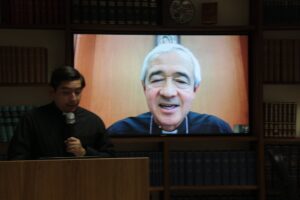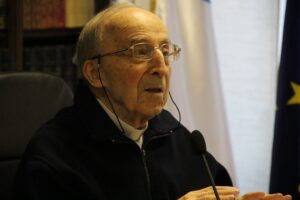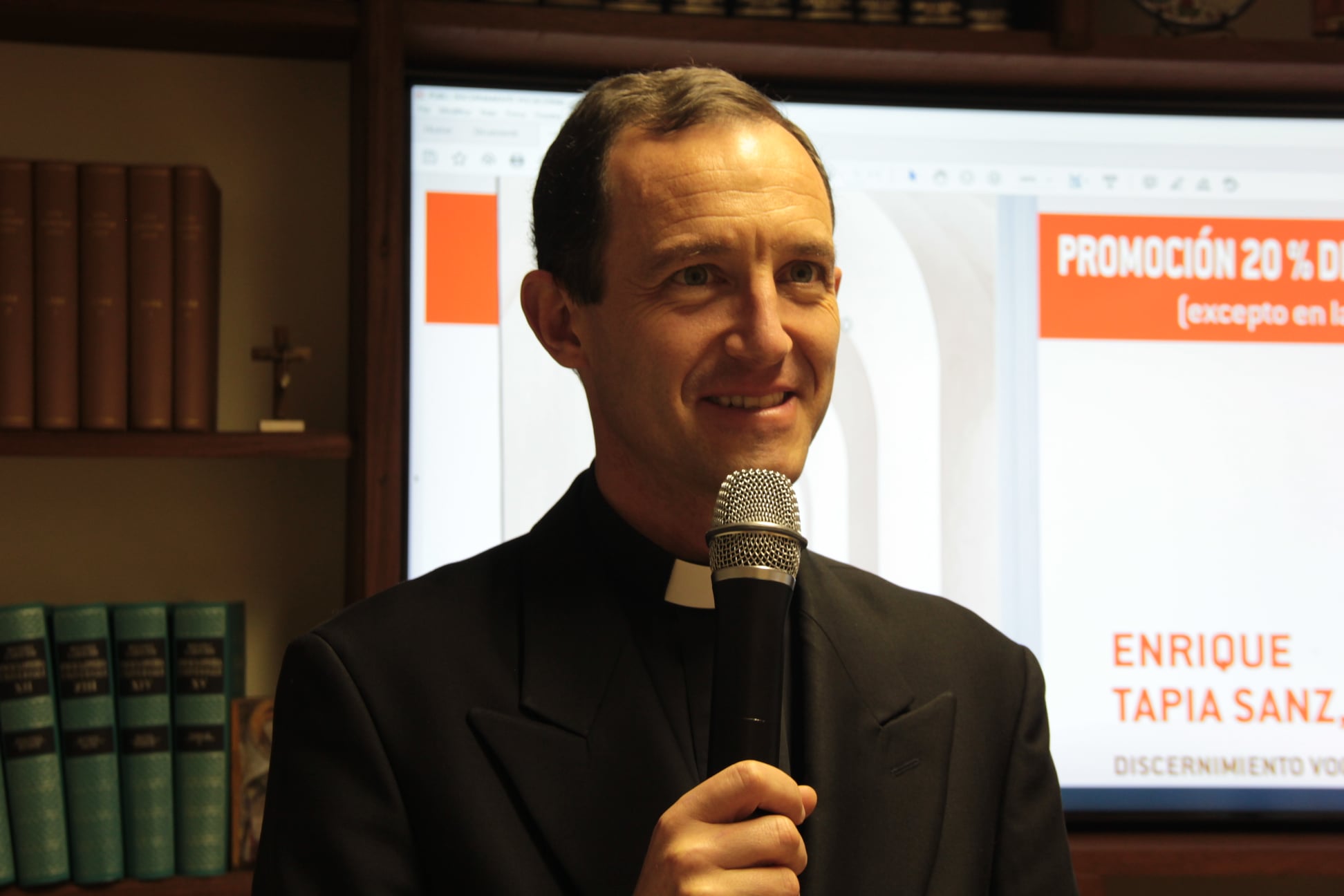 “When the Pope, in ‘Christus Vivit’, speaks of discernment, he speaks of Christian conscience, allowing its depth to grow. The Pope speaks of two perspectives of Christ: one directed to God and another to men. These two perspectives are what make a man or woman conform to Christ: always centered on God and on the brothers and sisters.
“When the Pope, in ‘Christus Vivit’, speaks of discernment, he speaks of Christian conscience, allowing its depth to grow. The Pope speaks of two perspectives of Christ: one directed to God and another to men. These two perspectives are what make a man or woman conform to Christ: always centered on God and on the brothers and sisters.
These were the words of the Mexican archbishop Jorge Carlos Patrón Wong, secretary for the Seminaries of the Congregation for the Clergy, in the online presentation of the book ‘Vocational Discernment. Keys for accompaniment according to Saint John of Avila’ (Monte Carmelo), by priest Enrique Tapia, Legionary of Christ.
“The first area of discernment is personal life”, continued Patrón Wong, also encouraging to “integrate one’s own spiritual life reality, so that vocation is not confined to an abstract ideal, like a mere practice detached from the heart of the person.”
He also recalled Pope Francis’s words regarding religious life: “it’s not about being officials, but about embracing in one’s own style of life the orientation that God wants here and now.” Furthermore, he explained that the other area of discernment “is the one that aligns with the gaze Jesus has towards the brothers and sisters.” “Every discernment must be read in a missionary key.” The mission is not simply a part of life, nor an appendix to existence. For a Christian, it is conjugated as ‘I am mission, we are missionaries’.”
Suitable candidates
In fact, this Christian understanding of discernment “frees us from all self-referentiality because it is lived entirely from surrender.” Additionally, he highlighted that “discernment does not depend solely on the one who is called, because vocation must be confirmed and the mission of the Church is to care for the birth, discernment, and development of all vocations.”

For this reason, the Church “must ensure the suitability of candidates”. In this regard, Father Tapia’s work “helps us see the importance of verifying the intention of those who want to enter religious life. It is necessary to confirm that there is a divine call, not a self-call, which is why it is important to seek suitability, rectitude of intention, and the person’s freedom.”
Meanwhile, Juan Esquerda Bifet, emeritus professor at the Pontifical Urbaniana University in Rome, emphasized that this book can be very helpful because of the way it revisits the figure of Saint John of Avila. “No matter how much he is a historical figure, his teachings need to be updated because they carry an important evangelical legacy,” he pointed out. “Just look at Saint Ignatius of Loyola, whose spiritual exercises are still relevant today as they were then,” he added.
The legacy of John of Avila
In this regard, Esquerda stated that Saint John of Avila “left us an evangelical heritage that we must receive, enrich, and pass on to the future.” “Today, vocational discernment is very important, because it lasts a lifetime, not only to know if we have a vocation but also to understand how to respond to it, how I can help others.” Thus, for the professor and priest, the book has great merit because “it summarizes very well the topic of discernment. And it will help us update the issues that concern it.”
Finally, the author of the book explained that it is the result of “several years of work with people who discern their vocation”, men and women seeking ways to respond to the call. And, for this, “Saint John of Avila has taught me a lot about the importance of prayer, but he also emphasizes the factor of freedom. It is very important for him, insisting strongly on the need to approach freely and maturely.”










